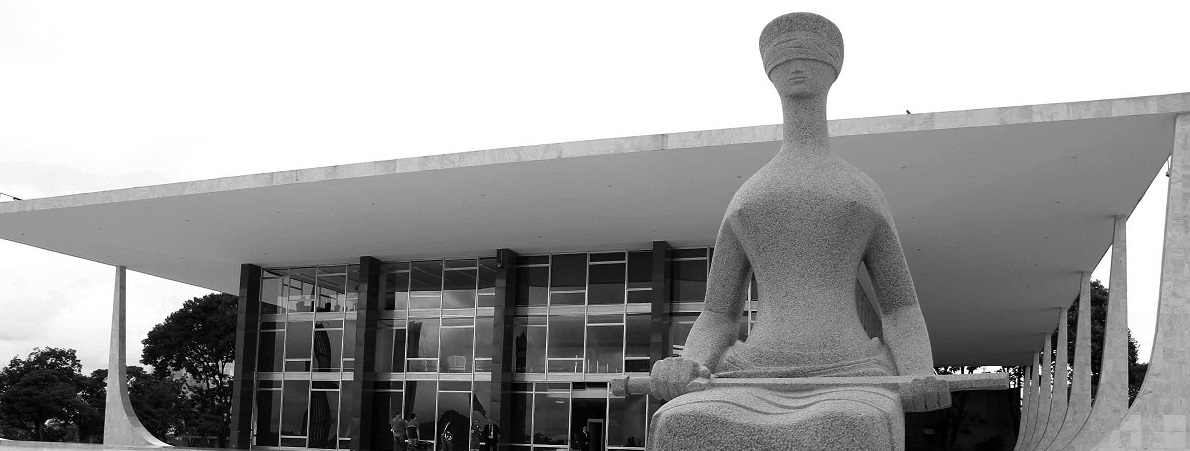By João Feres
The latest event in the protracted institutional crisis of Brazil’s democracy is a conflict between Supreme Court Justices and the media. It is not a fortuitous conflict as one might imagine at first sight. In order to better grasp its meaning, it is important to understand the nature of the players involved and their previous roles in the unfolding crisis.
The website O Antagonista and the web-magazine Crusoé published articles suggesting that Minister Dias Toffoli, currently the president of Brazil’s Supreme Court (STF), is the person mentioned by the nickname “the friend of your father’s friend” in e-mails exchanged between Marcelo Odebrecht (the CEO of the behemoth construction company that bears his family name) and two executives of the company. The messages were intercepted by the investigative team of the Lava Jato Operation. Faced with this public accusation, Toffoli opened an investigative procedure in the Supreme Court on March 14, denouncing the articles as fraudulent and harmful to his reputation. On April 15, Justice Alexandre Moraes ruled that the articles were indeed fake news and that the web pages containing them should be taken down.
The media responded quickly accusing Moraes and Toffoli of censorship and of violating the sacred freedom of expression, or freedom of the press – two terms that are often conflated. The General Prosecutor, Raquel Dodge, formally addressed the Supreme Court asking for the cancellation of the investigation due to the fact that the Court does not have the constitutional warrant to investigate a case in which it is the alleged victim.
Moraes initially ignored Dodge’s request, but decided to cancel his former decision to shut down the web pages and eventually gave up on the whole investigation.
This chain of events would be normal in a democracy in which institutions play their role of stabilizing the system by protecting it against damaging human actions, even when they come from agents within the system. However, in present-day Brazil we are watching a series of institutional clashes that have little to do with stabilizing the system.
The level of institutional dysfunction is high. Let’s start with the media, the less formalized of all democratic institutions, which has the important role of supporting a healthy public debate on key public issues. O Antagonista and Crusoé are not mainstream media outlets, but alt-right websites that, since their creation, have focused on producing incendiary texts against their political adversaries (particularly the Workers’ Party – PT –, its political allies, and its main leader, Luis Inácio Lula da Silva) that often resort to slander and insults. The main figure behind both publications, Diogo Mainardi, is a well-known right wing publicist who has been convicted of libel more than once.
Having a vocal radical right is something that Brazil shares with many democratic countries in today’s world. However, unlike in other countries, the behavior of the Brazilian mainstream media does not differ considerably from that of the alt-right outlets. The seven family-controlled companies that rule Brazil’s media landscape produce a heavily politicized journalism that is consistently biased against the very same targets of the alt-right: the democratic left. For more than a decade they have been lambasting the left with tons of accusations of political corruption, many of them unfounded, while dimming down accusations of corruption against right and center-right wing politicians. This is done through a journalistic coverage that privileges opinion pieces, the vast majority of them slanted against the left, and scandalously biased reportage.
This problem is compounded by the fact that all major media companies are located in the same region of the ideological spectrum, which stretches from the right to the center-right. So, the Brazilian media system on top of lacking professional standards of journalism also displays very little plurality of opinion.
There is nothing new about this. Since the return of political democracy in the 1980s, the ‘big media” have behaved this way. Nonetheless, in the last decade they gained powerful allies: sectors of the judicial branch and of the Public Prosecutor’s Office.
When Sergio Moro, then the leading judge presiding over the Lava Jato Operation, leaked illegal wiretaps of phone conversations between president Dilma and ex-president Lula to Rede Globo – the open access TV channel of Brazil’s largest media conglomerate – with the clear intent of politically damaging the already beleaguered Dilma, there was no media outrage against the blatant illegality of his action. The Supreme Court acted in an even more shameful fashion. Two justices, Ricardo Lewandowski and Celso Mello, reacted harshly against comments that Lula made about the Supreme Court in the phone conversations with Dilma, without even acknowledging the facts that the leak was illegal and that it was a private conversation that was not meant to be publicized. The Court eventually gave Moro a slap in the wrist, several months after the fact: he was admonished not to do it anymore.
Once again we have information leaked from investigations that are supposed to be conducted under secrecy. And yet again neither the media nor judicial operators seem to be interested in finding out who is violating this legal procedure. The General Prosecutor should be the first one engaged in pursuing the truth about this matter, as should the judicial system, but the Supreme Court justices seem to be more concerned with protecting their reputation than with protection of due process. And the media…. well, with the track record of Brazilian major media outlets, it would be unreasonable to expect them to try to right a wrong from which they profit immensely.
[qpp]

